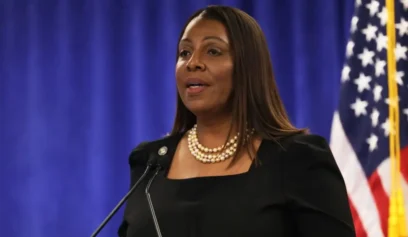President-elect Joe Biden has nominated retired Army Gen. Lloyd Austin as secretary of defense. Austin would become the first Black person to serve as Pentagon chief if he is confirmed by the U.S. Senate.
The decision to appoint Austin was first reported by The Associated Press on Monday, Dec. 7, and later confirmed by Biden himself in a first-person editorial he wrote for The Atlantic the next day.
Austin, 67, is a decorated four-star general with 41 years of military experience. A 1975 graduate of West Point, he’s already made history by breaking color barriers.

Austin became the Army’s first Black vice-chief of staff in 2012 and the first Black leader of U.S. Central Command, also known as CENCTOM the following year. CENTCOM “directs and enables military operations and activities with allies and partners to increase regional security and stability in support of enduring U.S. interests,” according to its website. It oversees military operations in Europe, Africa, and Asia.
Biden said Tuesday that Austin “is a true and tested soldier and leader.” The president-elect went on to describe his experience with his secretary-designate, saying, “I’ve spent countless hours with him, in the field and in the White House Situation Room. I’ve sought his advice, seen his command, and admired his calm and his character.”
When the news of Austin’s nomination broke, some praised the general as a great choice.
Navy Administrator Mike Mullen — who served with Austin from 2009 to 2010 when Mullen was Joint Chiefs of Staff chairman — said Austin would be a “superb” leader.
“Should President-elect Biden tap him for the job, Lloyd will make a superb secretary of defense,” Mullen said in a statement Monday, Dec. 7. “He knows firsthand the complex missions our men and women in uniform conduct around the world. He puts a premium on alliances and partnerships. He respects the need for robust and healthy civil-military relations. And he leads inclusively, calmly and confidently.”
“General Austin is a southerner, has impeccable credentials given his military career and would be an outstanding secretary for the department,” Rep. Bennie Thompson, who is also a member of the Congressional Black Caucus, told Politico.
Others, however, have raised concerns that Austin’s close proximity to his military service could be problematic.
Austin retired in 2016, less than the seven years of civilian life required by law to serve in the role. It is a tradition that was put in place to ensure the civilian perspective is not overlooked by military officers and allegiances.
“Retired generals are not one-for-one substitutes of civilian leaders,” former National Security Council member and Pentagon staffer Loren DeJonge Schulman told AP. “General officers bring different skills and different perspectives, and great generals do not universally make good appointees.”
Democratic Rep. Elissa Slotskin echoed Schulman, saying while she has “deep respect” for Austin, “choosing another recently retired general to serve in a role that is designed for a civilian just feels off.”
The concerns are valid and, if confirmed, Austin would require a congressional waiver to actually take the position. Such a waiver has only been granted twice in the past, to George C. Marshall and James Mattis. The latter served as President Donald Trump’s first Pentagon chief before resigning in December 2018 over conflicts with Trump administration policies.
Biden, who has known Austin at least since his days serving as vice president under Barack Obama, underscored his case on Tuesday for why Austin should get the congressional waiver and why the general’s skill set is so well suited for the secretary of defense job at this time. “The next secretary of defense will need to immediately quarterback an enormous logistics operation to help distribute COVID-19 vaccines widely and equitably,” Biden said. “Austin oversaw the largest logistical operation undertaken by the Army in six decades — the Iraq drawdown.”


